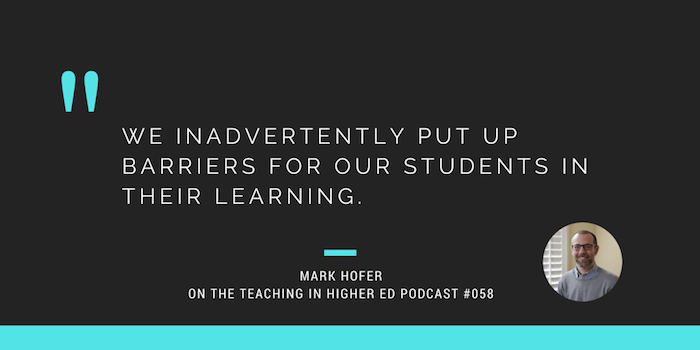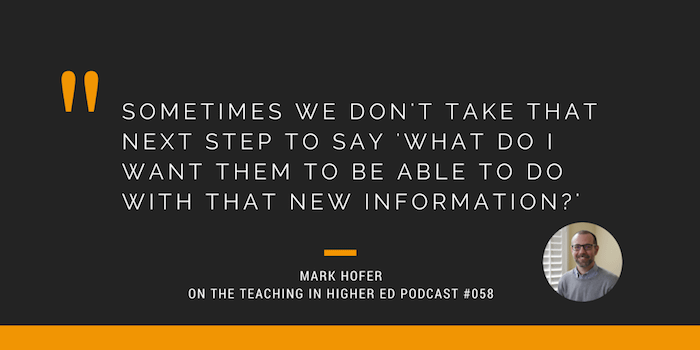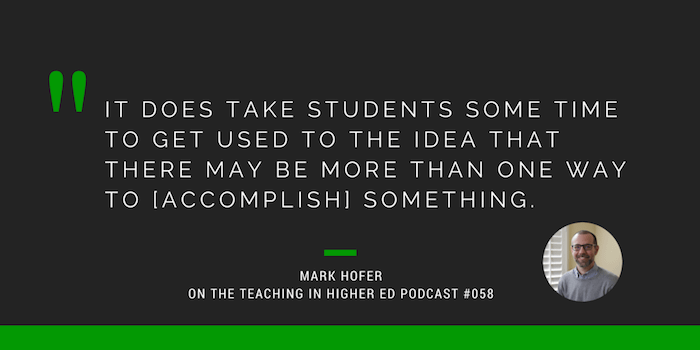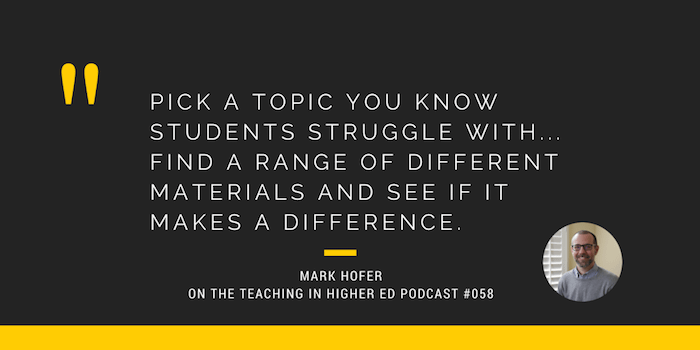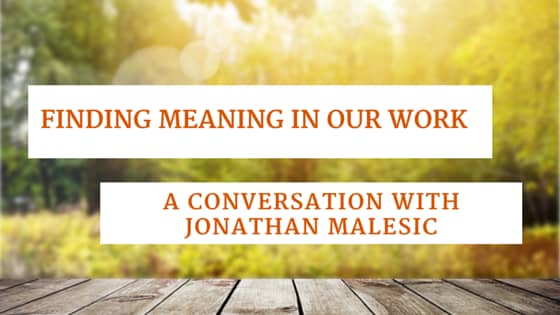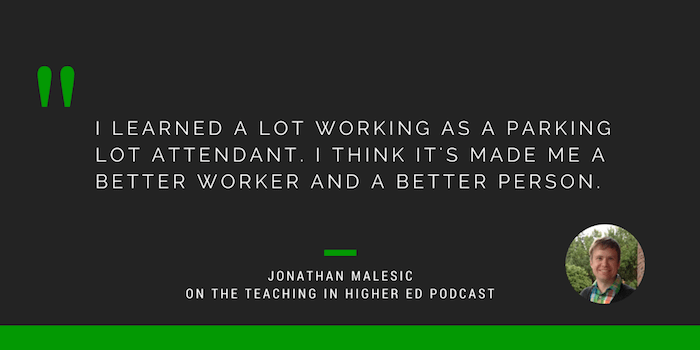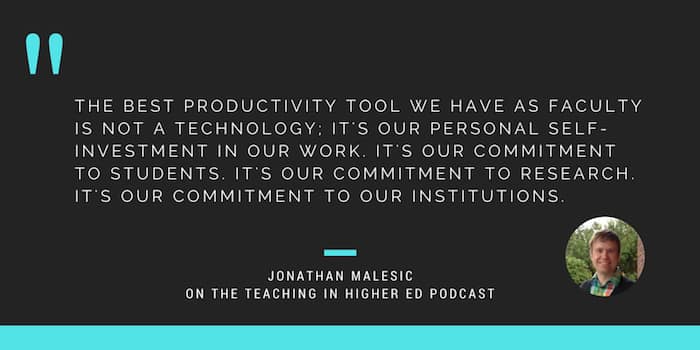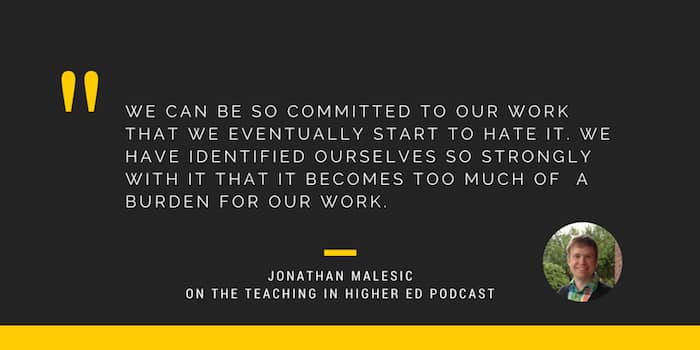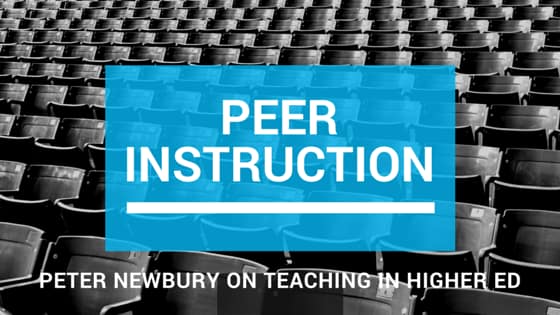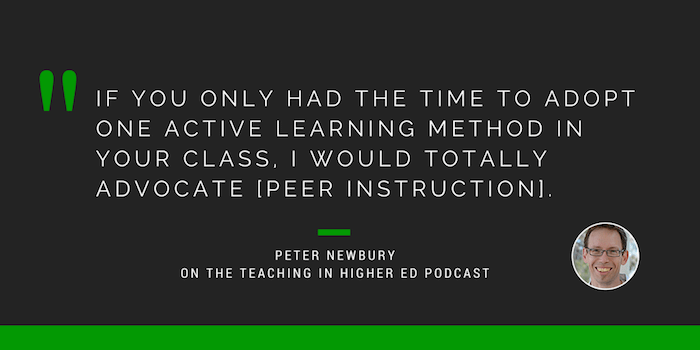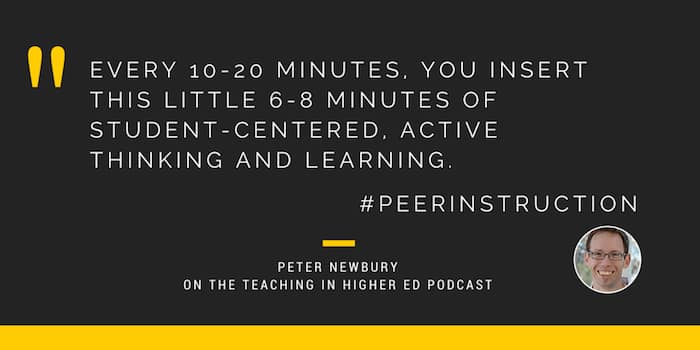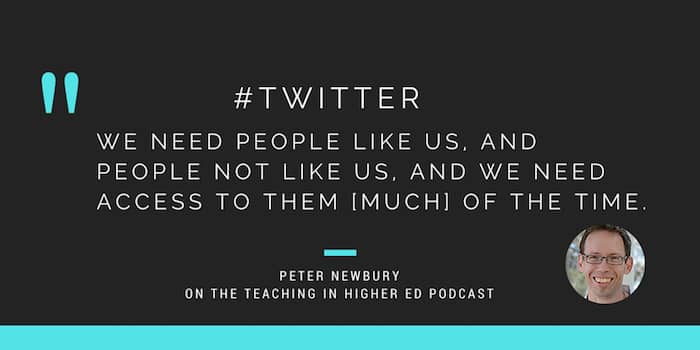Mark Hofer shares how he implements Universal Design for Learning in his teaching, so that all students have the opportunity to learn.
Podcast notes
Guest: Mark Hofer
Universal design for learning
Student, Tony, who helped Mark identify the need for Universal Design for Learning (UDL)
…gives all individuals equal opportunities to learn. – National Center on Universal Design for Learning
If you think about [the UDL] components as you're designing your course, you're going to wind up with better learning experiences for all your students. – Mark Hofer
Addressing concerns about UDL
We inadvertently put up barriers for our students in their learning.
Mark's compare and contrast example
Get started incorporating UDL into a course
Step 1:
- What do I know that students struggle with related to this [topic or competency]?
Step 2:
- What kind of options could I include to help them with [those common challenges]?
It does take students some time to get used to the idea that there may be more than one way to [accomplish] something. – Mark Hofer
Guidelines
- Engagement – Mark is building his course around badges and experiences (through gamification and choice)
…goal is to try to make the learning as relevant and interesting to the learning, not just initially, but to sustain their interest in the learning… – Mark Hofer
- Representation – pulling together readings, videos, interactives, where you can choose the way to learn
- Action and expression – Mark is creating, for each project, 3 different options, all measured by the same rubric
While it is more [work] to select the various kinds of resources, it's paid back when in class the students are more prepared and we can go into further depth. -Mark Hofer
Getting started with UDL
- Peter Newbury describes getting started with peer instruction on episode #053
Don't try to do [UDL] for every lesson, every day; it's a recipe for burnout. – Mark Hofer
- Make sure all assignments aren't of the same type, over the course of a semester
- “Pick a topic / concept that you know that students struggle with and try to find a range of different materials and see if it makes a difference.” – Mark Hofer
Common misconception about UDL
- While technology can help you implement UDL, it isn't dependent on using it…
- UDL is an instructional approach and does not require technology
In relation to universal design
If you apply good accessibility practices to [course content], it will really benefit multiple learners in the process. – Mark Hofer
Recommendations
Bonni recommends:
Mark recommends:
Closing notes
- Rate/review the show. Please consider rating or leaving a review for the Teaching in Higher Ed podcast on whatever service you use to listen to it on (iTunes, Stitcher, etc.). It is the best way to help others discover the show.
- Give feedback. As always, I welcome suggestions for future topics or guests.
- Subscribe. If you have yet to subscribe to the weekly update, you can receive a single email each week with the show notes (including all the links we talk about on the episode), as well as an article on either teaching or productivity.
